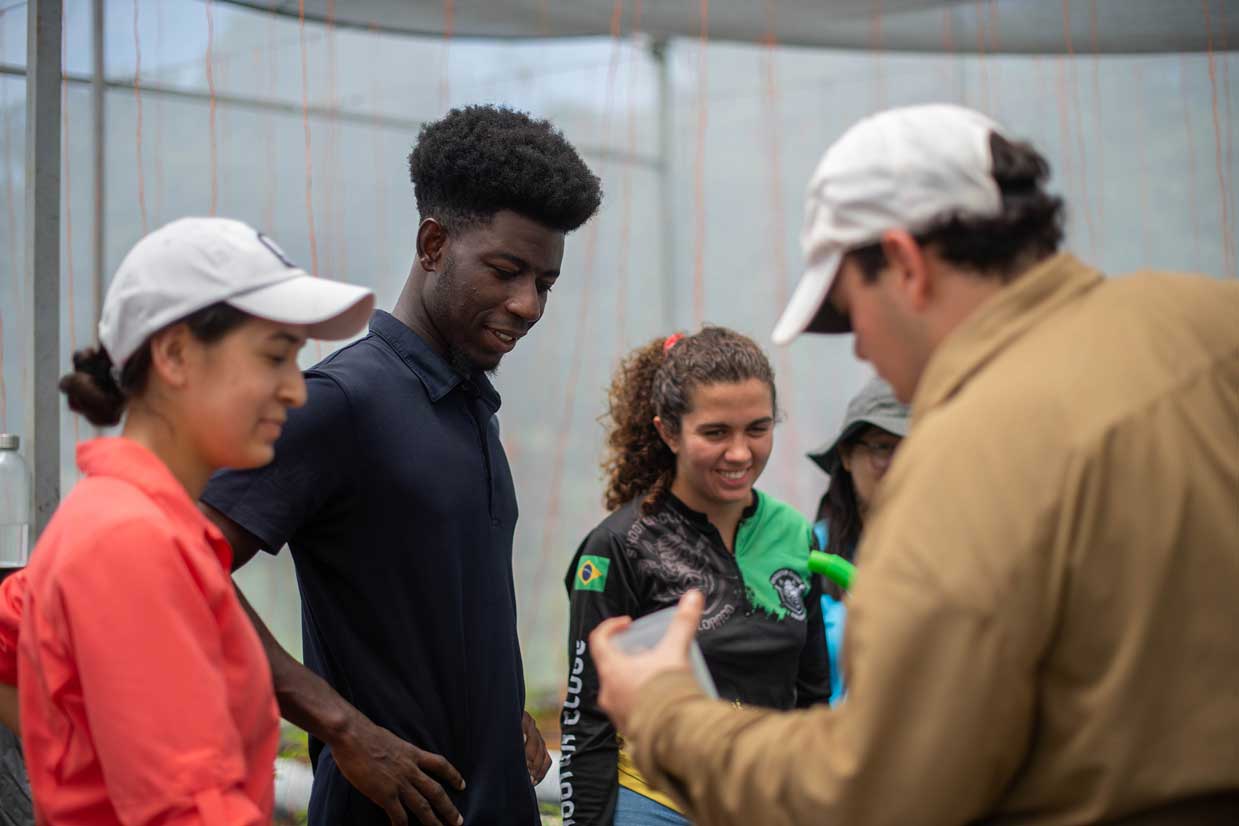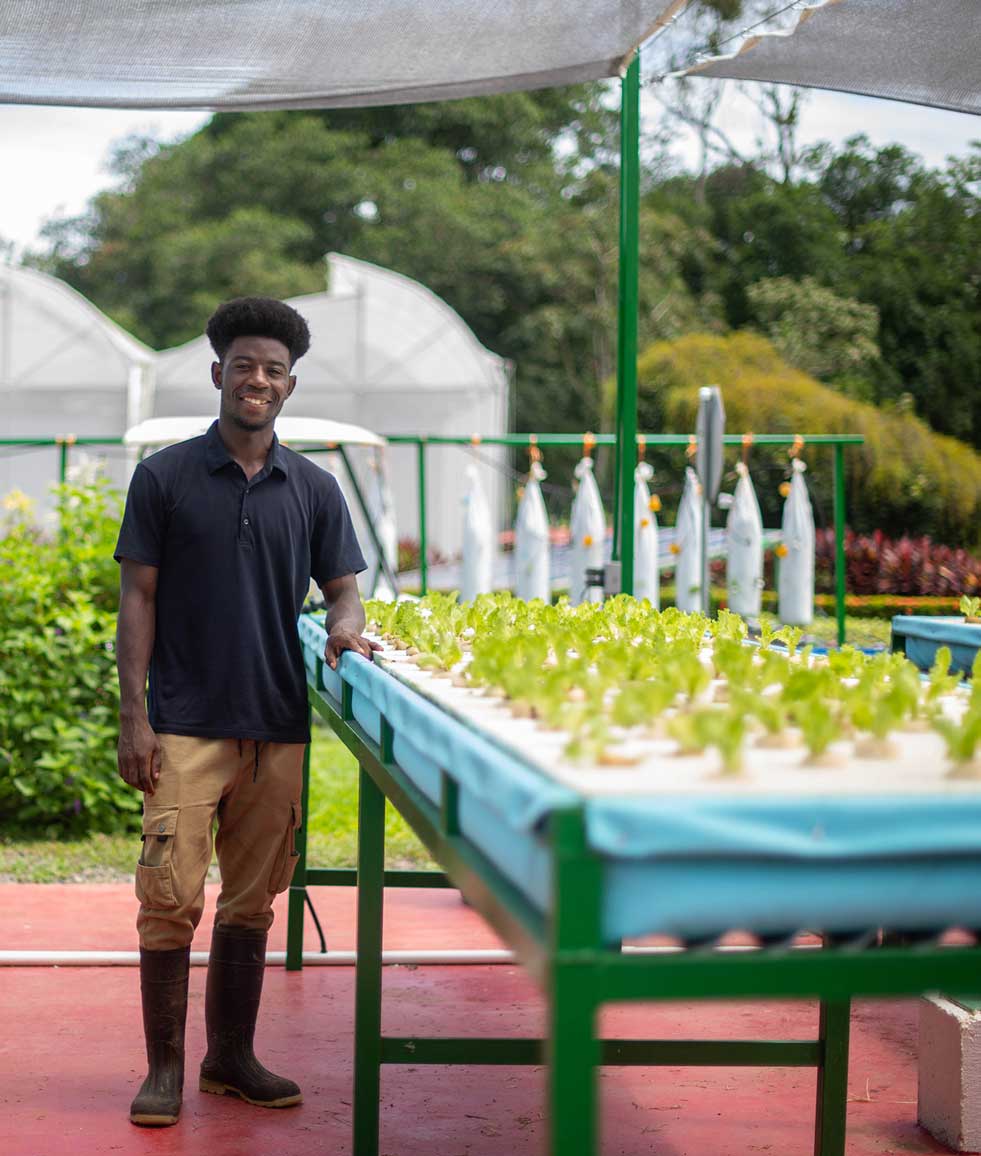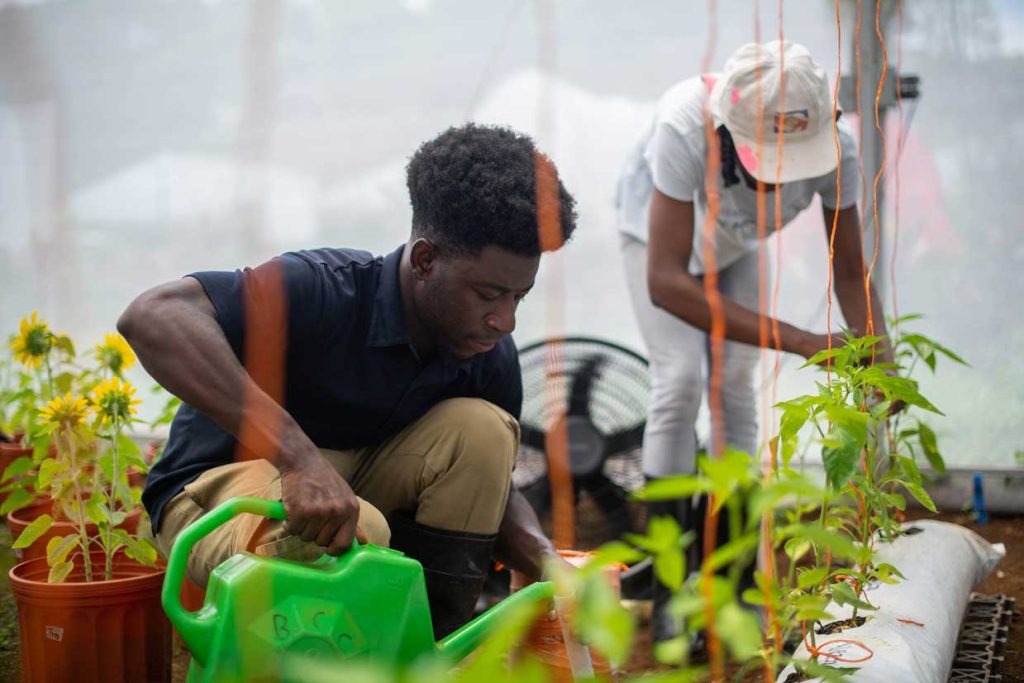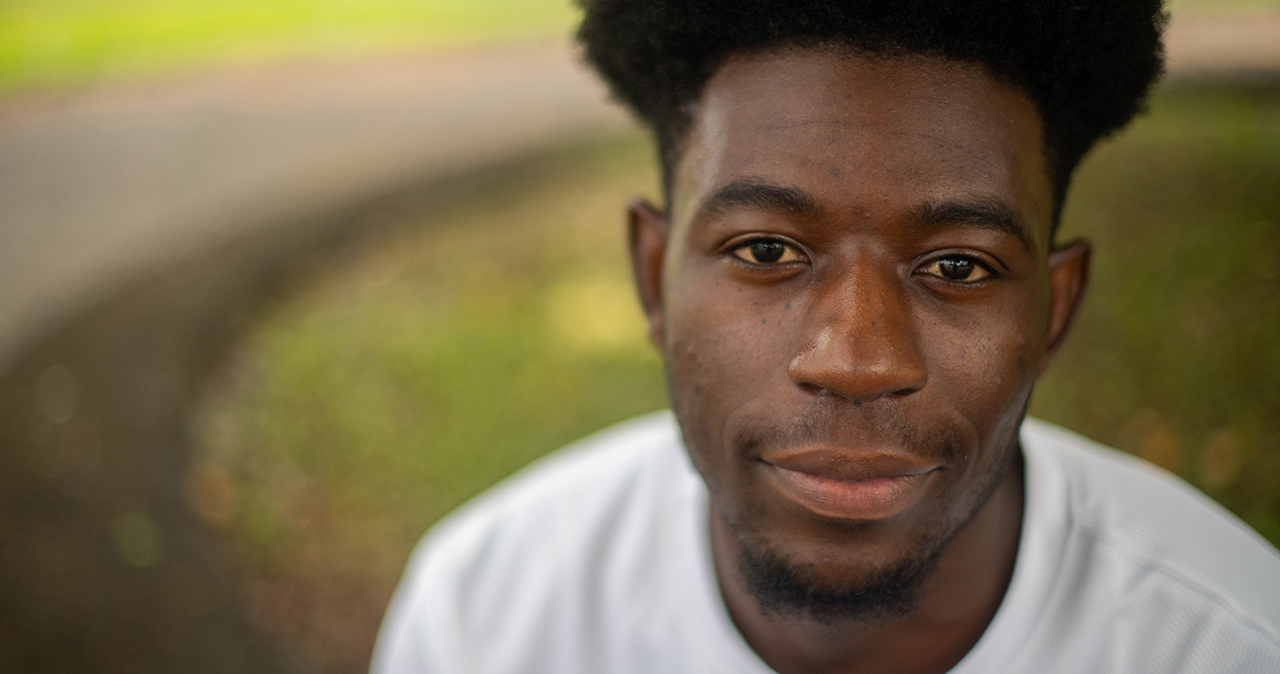Glorie Bambi (Class of 2026, Congo) has a passport with a light blue cover. It doesn’t have any country’s name written on it. Two small golden lines adorn a short text that reads, “Travel Document, Convention of July 28, 1951.” That Convention, held in Geneva, Switzerland, was the event that set a precedent for human rights. It defined and recognized refugees as individuals who flee their homes due to threats to their life or freedom caused by armed conflicts, massive human rights violations, or any other circumstances that disrupt public and individual order. In summary, the Convention became the international legal precedent concerning the right to asylum and refugee status.

Bambi was twelve years old when he had to use that right. The armed conflict between the March 23 Movement (M23) and the government erupted in the Kivu region of the Democratic Republic of Congo in May of 2012 and lasted until peace agreements were signed in 2013. Bambi lived in the provincial capital of Goma with his parents and his sister, who was five years older than him. The tension was palpable. Due to constant clashes, thousands of people had to flee the region to seek safety. It was in June of 2012 when Bambi and his family had to flee to search for a new home. Fleeing is never easy. In the turmoil and desperation his father tragically died amidst the violence. His sister vanished in the crowd of people trying, at all costs, to survive.
Bambi and his mother, Agnes, arrived at a refugee camp in Zimbabwe on June 30th, a date he says he will never forget. In the following days, weeks, and months, both awaited news of his sister. The Red Cross was searching for her in the neighboring countries where Congolese refugees had been displaced. For Bambi, time passed without being able to believe what was happening. He tried to convince himself that they would soon return home to normality. It took him years to understand his migratory status—REFUGEE —the word that now defines his nationality in a passport granted by the United Nations. The word that gives him strength and fills him with motivation to make the world understand that refugees have abilities, rights, and dreams like any other person. Bambi carries his story with pride.
After two years of waiting, Bambi and his family received the news. His sister had been found in Zambia and would be reunited with the family. Bambi recalls the moment of the reunion with emotion, remembering his mother’s tears and the happiness wrapped in that long-awaited hug. During those two years, Bambi and his mother adjusted to life in Zimbabwe. He learned English and started studying again. But it took him time to focus on his education and to develop into the outstanding student he would one day be. In the end he succeeded and completed high school as an exemplary student and leader in different areas. Since then, Bambi has developed a particular interest in leadership, social work, and community development.

Bambi’s first encounter with EARTH was through graduate Respect Musiyiwa (20, Zimbabwe), who had initiated a project to empower young refugees and support them in their academic processes. At the same time, he began working with women and their families to teach good agricultural practices and improve their food security and sovereignty. Seeing Respect’s work, Bambi felt inspired and with his help decided to apply to EARTH. In November last year, Bambi traveled to Costa Rica to learn Spanish and then begin his training as an Agronomist as part of the Class of 2026.
Although he has just begun his journey at EARTH University, Bambi is already making his mark. At the beginning of the year, he realized the importance of joining forces with other refugee students to support each other and create a safe space of trust and empathy. Bambi proposed the idea to the Office of Student Affairs, and that is how the space for refugees at EARTH University was created, with members from countries including Nicaragua, South Sudan, Congo, and Uganda.
“When you talk about refugees, people think of poverty, of individuals walking barefoot on the streets, starving. And although that is a possible reality, refugees are not just that. We are people like anyone else, but we had to face certain circumstances that forced us to experience a huge change in our lives. In our group, we want to come together to support each other and raise awareness about the realities of refugees. Additionally, we want to support other refugees in Africa and Costa Rica by volunteering and assisting with academic processes.”

EARTH University and the Mastercard Foundation have joined forces to provide study opportunities and full scholarships to young refugees from different parts of the world. Bambi adds, “The impact that this opportunity has for someone like me is huge. Sometimes I felt like I had nothing, but now I’m here, and I can be an example and inspiration for other young refugees.”
In the future, Bambi sees himself working with his community in Zimbabwe—the country that welcomed him as a child—to create new opportunities through agriculture. He wants to teach people how to properly use soils, how to manage water resources, and how to use agricultural techniques to transform food systems that ensure everyone has access to healthy food. Bambi is a refugee. His story is an anchor that allows him to look toward the future, dream big, and never forget where he comes from.
